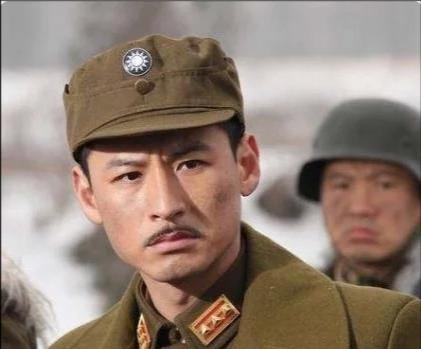What is history: it is the echo of the past to the future, the reflection of the future on the past. - Hugo
By making history our own, we move from history to eternity.
After 1949, after sweeping away Chiang Kai-shek's remnants throughout the country, our army carried out another large-scale inventory throughout the country, essentially purging the remnants of the Kuomintang personnel.

Because the Liberation War had just ended, the order and personnel files throughout the country were relatively chaotic, and even the strange phenomenon that forged archives and appointment letters could be taken to another place, for example, there was a person named Li Wanming, who relied on forged certificates and was mixed up until he became a high official in the central authorities, and later some people wrote a drama called "Looking West to Chang'an" based on his deeds.
So in December 1950, to October 1951, more than a year of inventory, many people with problematic identities were wrongly killed, according to the statistics at that time, the number of people who were checked was as high as 700,000, today we talk about, after the uprising, the former Kuomintang lieutenant generals who were shot again during the investigation, who were they?
No. 1, Mizu pond
Mi Lotus Pond, born in 1897, a native of Guizhou, joined the Qian Army in his early years, in 1925, he was admitted to the Whampoa Military Academy, became the second batch of cadets, and after graduation, he participated in the Eastern Crusade and the Northern Expedition, and served as the platoon leader of the three companies of the 4th regiment of the Huangpu Military Academy.
In 1930, he was promoted to deputy regimental commander of the 9th Regiment of the 3rd Division of the Nationalist Army, and in 1937 he participated in the Battle of Xinkou and was promoted to brigadier general of the 255th Brigade of the Nationalist Army for his military merits. Soon after, he was appointed deputy commander of the 94th Division, and in 1949 he led the troops in an uprising shortly after being appointed commander of the Independent 1st Division of the Qiangong Office, but in July 1951, he was executed during an investigation, and it was not until the 1980s that he was rehabilitated.
No. 2, Xie Chongjie
Xie Chongjie, with the rank of lieutenant general, born in 1904, a native of Sichuan, went to Japan in 1927 to study, entered the Japanese Army Non-Commissioned Officer School, after the outbreak of the September 18 Incident, he gave up his studies and returned to China, was appointed as a staff officer of the 7th Division of the 28th Army, and later promoted to chief of staff.
Before 1945, he served as the chief of the Zigong City Police Bureau, the director of the Recruitment Department of the Sichuan Provincial Military District Headquarters, and the chief of staff of the Sichuan Provincial Military District. At the end of the Liberation War, in 1949, he became the commander of the Chuanxi Division, and soon after the uprising in Leshan, Sichuan, he was shot in 1951 during the inventory, and it was not until 1984 that he resumed his status as an uprising.
Third place, Peng Kuanggao
Peng Kuanggao, with the rank of Lieutenant General and a native of Tianmen, Hubei Province, attended the Army Signal Officer School in Beijing and the Special Class of the Army University. After graduating, in 1927 he was appointed director of the Communications Institute of the Transportation Department of the Headquarters of the Commander of the National Revolutionary Army, and was responsible for radio communications.
In 1937, after the outbreak of the War of Resistance Against Japan, he was appointed chief of staff of the 54th Army, participated in the Battle of Songhu, and in the second year he was appointed head of the education department of the Army Signal Corps School.
During the War of Resistance Against Japanese Aggression, he successively served as the commander of the 1st District Security Of Hubei Province, the staff officer of the Major General of the Sixth Theater, the chief of staff of the 29th Group Army, and the commander of the 1st Clearance and Suppression District of the Qianbian Region of Exiangchuan.
In 1948, he served as the director of the office of the Central Training Regiment, and in 1949 he was also the director of the Hubei Provincial Department of Civil Affairs, as well as the deputy commander of the Third Corps, and soon after the uprising in Jintang, Sichuan, and was later appointed as the senior staff of the Southwest Military Region of the People's Liberation Army. However, in 1951, he was also executed during the inventory, and it was not until 1982 that his sentence was revoked and he was rehabilitated.